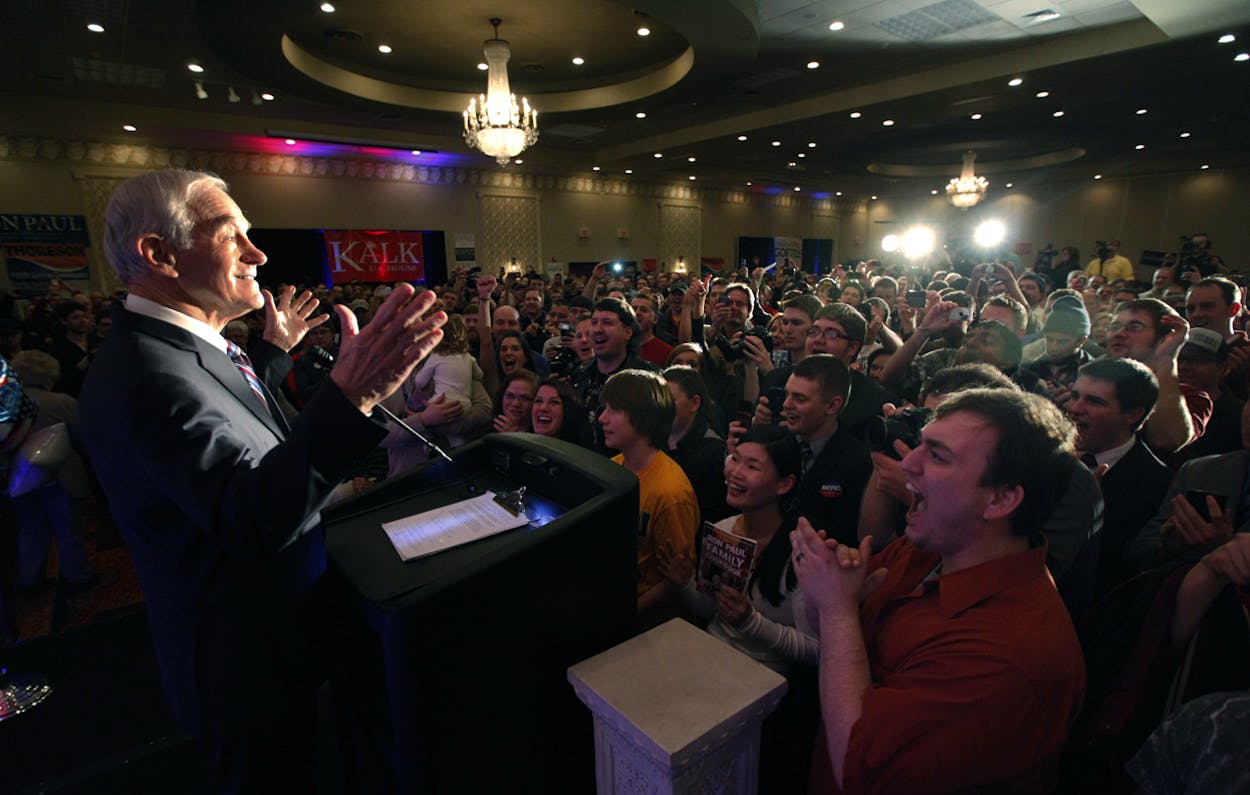“Nobody’s going to clinch the election today,” Ron Paul said on CNN before the first polls closed on Super Tuesday. “And you know, you get Gingrich winning some states, you get Santorum winning some states, you get Ron Paul winning some states.”
Except Ron Paul didn’t win any.
Eleven states held a primary election or caucus Tuesday (Texas would have been the twelfth were it not for redistricting), with Mitt Romney winning seven, Rick Santorum winning three, and Newt Gingrich taking his home turf of Georgia.
As Politico‘s James Hohmann explained, Paul had high hopes for his first-ever presidential primary win, with a victory in North Dakota, Idaho, or Alaska. But, as Hohmann wrote:
The loss [in North Dakota] portends another disappointing election night for the septuagenarian. It’s a cycle that has repeatedly played out during Paul’s third White House bid — huge crowds show up to Paul events, sparking confident predictions from his campaign team. But then the losses roll in, perhaps because many of the young voters who come to hear Paul don’t show up to vote.
Instead, Rick Santorum won North Dakota with 39.7 percent of the vote, followed by Paul with 28.1 percent and Romney with 23.7 percent. (Paul finished second in Idaho with eighteen percent of the vote and third in Alaska, with 24 percent.)
This “was considered somewhat of a surprise by many GOP officials,” reported the Associated Press. “North Dakota Public Service Commissioner Brian Kalk, a candidate for the U.S. House, predicted before the caucuses that Paul would ‘win easily.'”
Not only did Paul lose, he couldn’t even get credit for second place from Bloomberg News, which headlined a story, “Santorum Defeats Romney to Win Republican North Dakota Caucuses.”
There were better tidings from Virginia, where Paul and Romney were the only candidates to make the ballot. As Chris Cillizza of the Washington Post‘s The Fix blog wrote:
[W]ith nearly all the votes counted in the Commonwealth, Paul is receiving 41 percent of the vote statewide. That is by far the largest percentage of the vote he has won in any state since he began running for president in 2008. Paul’s previous high was 35 percent in the Maine caucuses last month.
Paul almost certainly benefited from the fact that he was the only non-Romney on the ballot in Virginia. People who support former House Speaker Newt Gingrich and former Pennsylvania Rick Santorum likely cast their vote for Paul not because they support the Texas libertarian but because they want to weaken Romney.
But because the state apportions its delegates by congressional district rather than popular vote, “Paul looks likely to win just three of the state’s 46 delegates with Romney netting the other 43,” Cilizza added.
Paul plans to stay the course with his delegate strategy, telling CNN’s King:
We want a lot more delegates. We haven’t even counted the delegates for the delegate process that has been started in the last couple of months, won’t finish for another two months. So we don’t know exactly what we’ll do. So we’ve got to count the delegates before we make any decisions.
According to the New York Times, Paul only has 47 delegates (a candidate needs 1,144 to secure the nomination), but he’s still not going anywhere (in both senses of that phrase).
“We always win, right?” he said to supporters in North Dakota yesterday. “The cause of liberty is on a roll, let me tell you that.”
- More About:
- Politics & Policy
- Ron Paul







